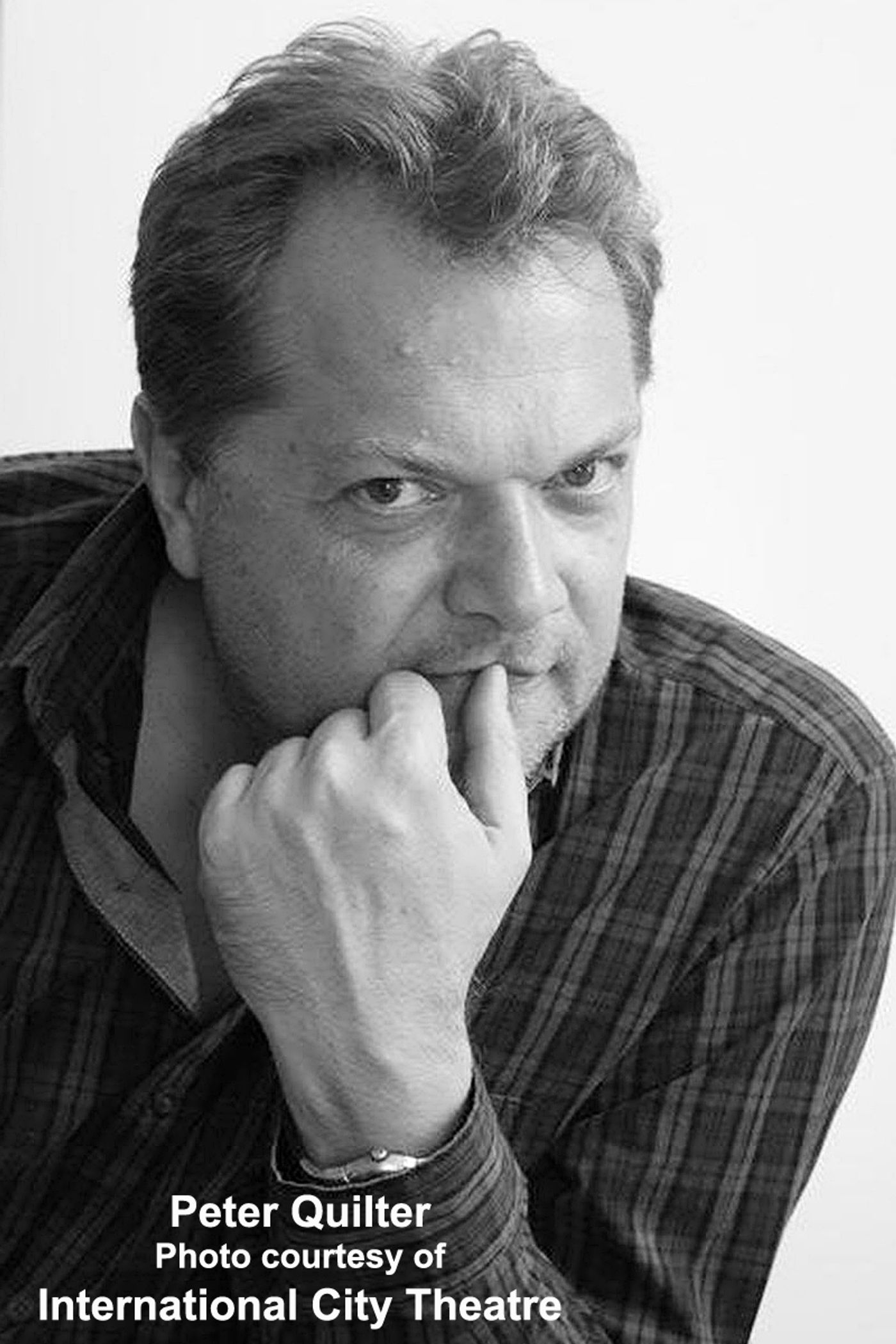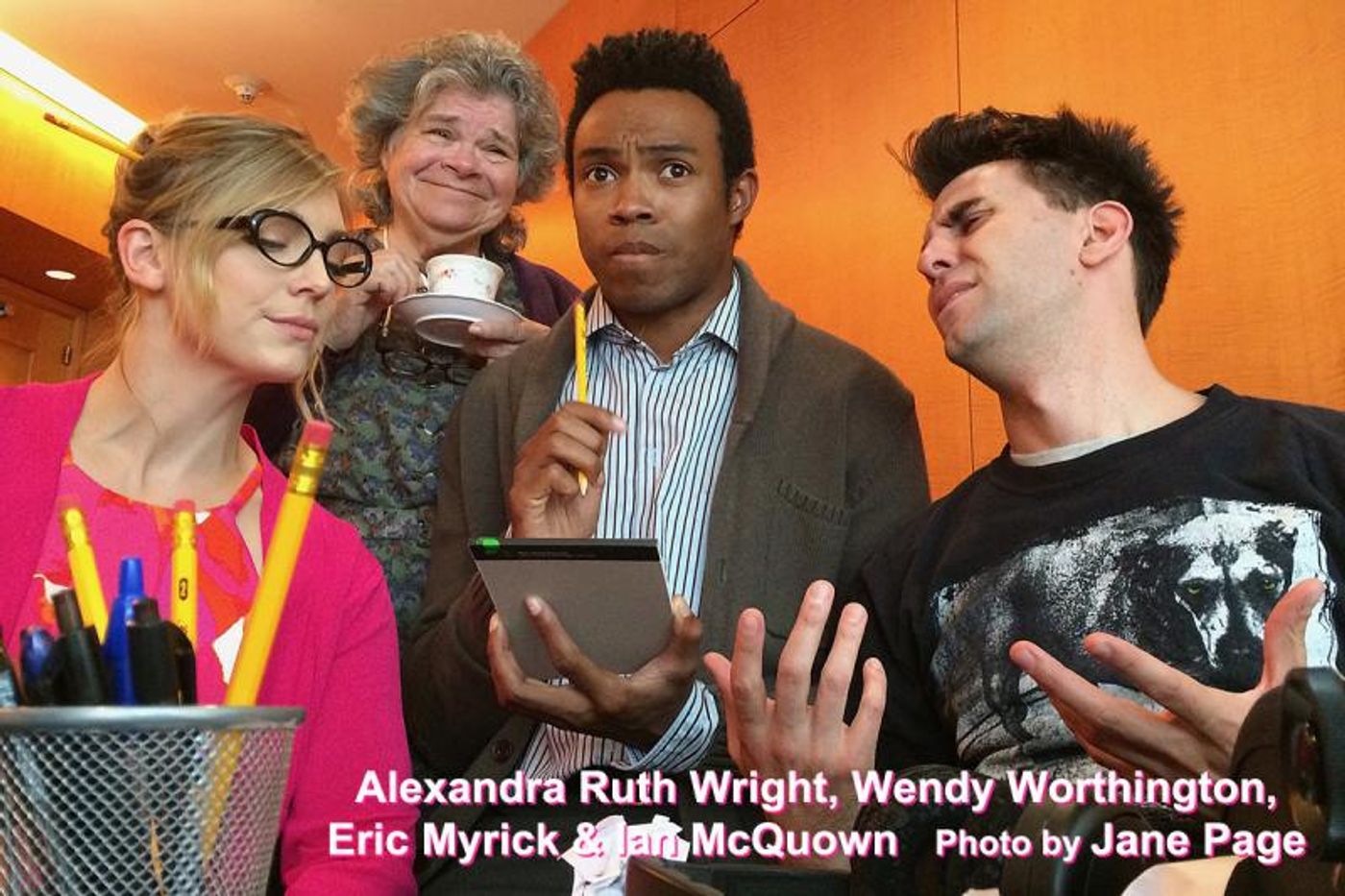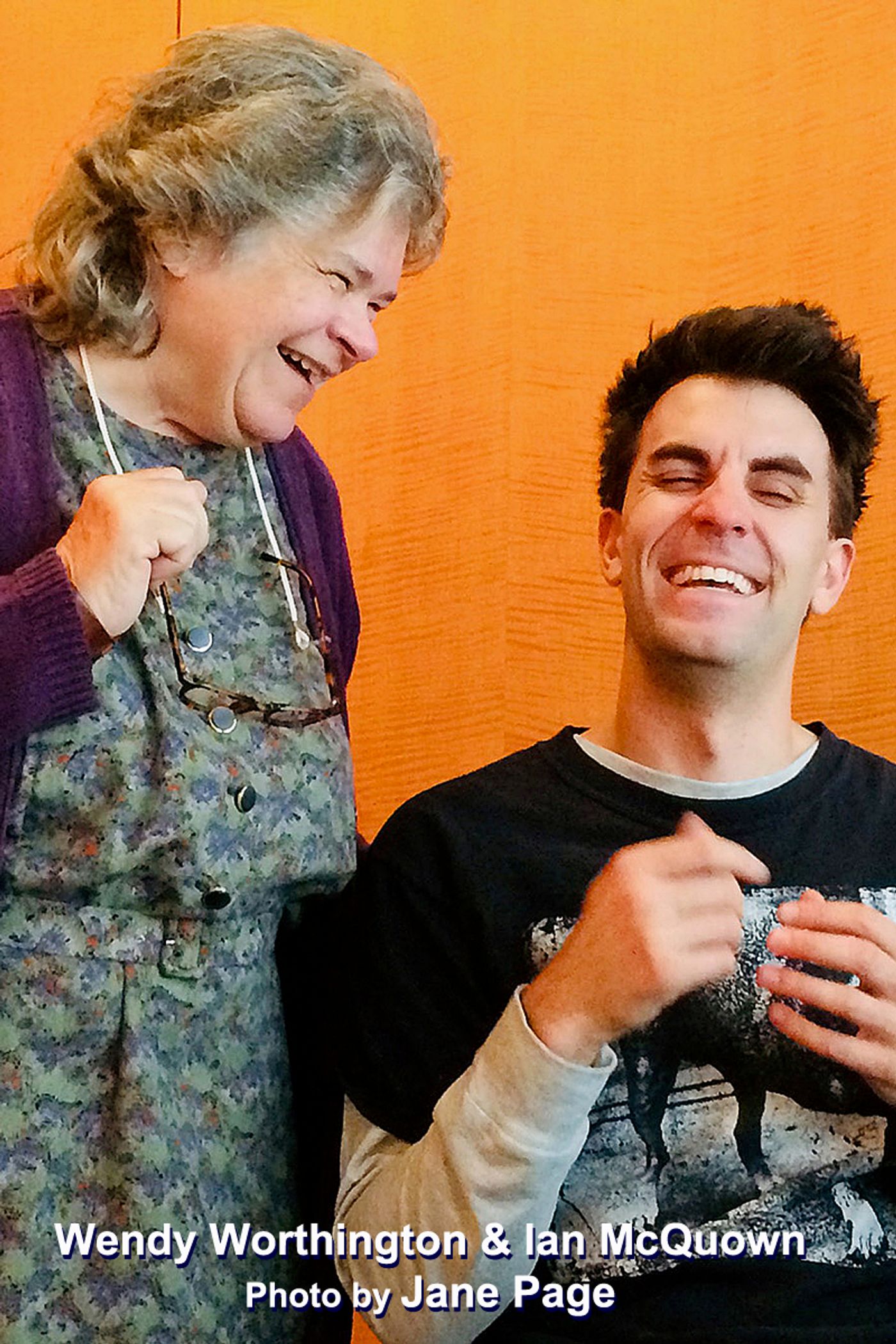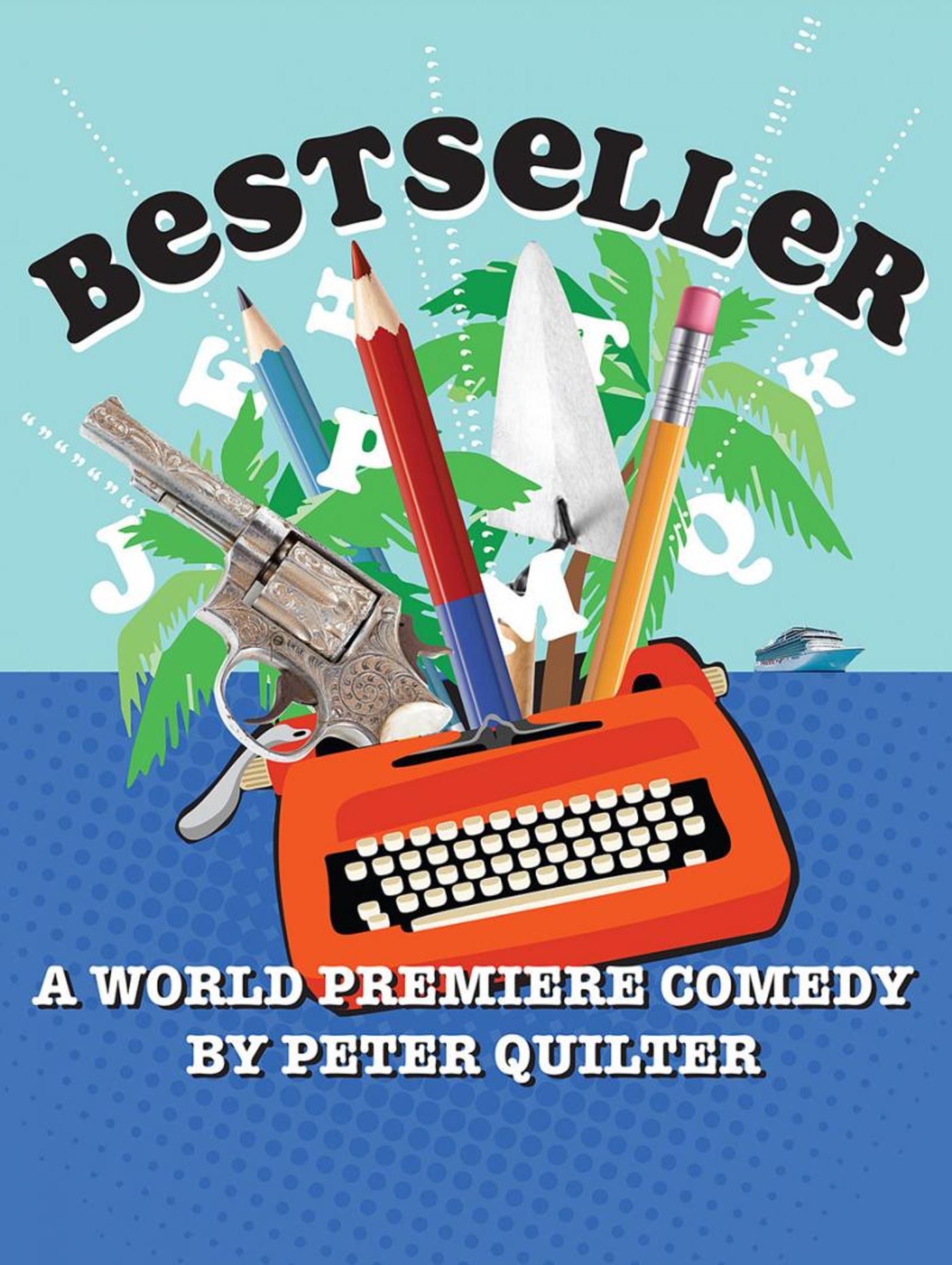Interview: Playwright Peter Quilter On His Global Paths To World Premiering His Latest BESTSELLER

Internationally renowned playwright Peter Quilter will have his latest theatrical accomplishment BESTSELLER world premiering at the International City Theatre (ICT) in Long Beach beginning June 12, 2019. Writer of such successful shows as END OF THE RAINBOW on Judy Garland and GLORIOUS! on Florence Foster Jenkins, amongst others, BESTSELLER centers on a writers retreat housing an eclectic bunch of writers with writers block. Peter agreed to correspond with me from his home in the Canary Islands.
Thank you for taking the time for this interview, Peter! I was fortunate enough to catch the Laguna Playhouse production of your END OF THE RAINBOW in the fall of last year.
How is the weather there in the Canary Islands?
The weather here is pretty much always warm and sunny. Writers spend most of the day at the computer, and when I lived in London, all I would see out of the window was grey skies and rain! So this is much better!
Will you be traveling to Long Beach for your world premiere of BESTSELLER?
Unfortunately, I cannot get to Long Beach for the show due to family issues here. It is a great shame, as it will be the world premiere of the play, and I think ICT will present a brilliant production of it.
How long has the gestation period been for BESTSELLER?
caryn desai (ICT's artistic director) decided to do the play only about three months after I finished writing it, which is very fast. Normally you have to wait about a year before you start getting interest. Deciding to take a chance on new work is always an act of great bravery by theatre companies. I wish more would do it. Reviving classic plays is fine, but there's an added excitement to offering a play to audiences for the very first time. The audience is getting a very special experience. If the play goes on to be produced around the world, it will forever carry the name of ICT with it. I hope it's a massive hit. Then, maybe they'll premiere another play of mine in the future - and next time I can come to see it!
What initially sparked the genesis of BESTSELLER?
 It was very interesting, actually, because I hadn't written a new play in two years. I just couldn't seem to get motivated or find the right idea. And one day, I was thinking about all this and wondered if perhaps I had writer's block. So I sat on the sofa with my iPad, researching exactly what writer's Block was, and watching video tutorials about how to handle it. One thing I came across was a writers retreat where you could go to "re-discover your creativity." And suddenly there was the germ of an idea. A play about a writer with writer's block who goes to a writers retreat. The play developed a great deal from that point, bringing in a mysterious landlady, two eccentric other novelists, and three unfolding stories that emerge from the pages of their new books. But the beginnings of the play were essentially a playwright with writer's block deciding to write a play about writer's block!
It was very interesting, actually, because I hadn't written a new play in two years. I just couldn't seem to get motivated or find the right idea. And one day, I was thinking about all this and wondered if perhaps I had writer's block. So I sat on the sofa with my iPad, researching exactly what writer's Block was, and watching video tutorials about how to handle it. One thing I came across was a writers retreat where you could go to "re-discover your creativity." And suddenly there was the germ of an idea. A play about a writer with writer's block who goes to a writers retreat. The play developed a great deal from that point, bringing in a mysterious landlady, two eccentric other novelists, and three unfolding stories that emerge from the pages of their new books. But the beginnings of the play were essentially a playwright with writer's block deciding to write a play about writer's block!
Your plethora of plays cover a variety of subjects from known performers Judy Garland (END OF THE RAINBOW), Florence Foster Jenkins (GLORIOUS!) to unknown actresses (CURTAIN UP, THE ACTRESS) to grieving civilians (DUETS, 4000 DAYS), just to name a few. What inspires you to put your thoughts down in monologues and dialogues?
My plays cover a very wide range of subjects and also are very different in style. I've written light comedies, farces, heavy dramas, musicals, biographies, satires, etc, etc. This is because I always start with the idea, and then decide what kind of play the idea demands. So sometimes I find myself writing something heartbreaking (like END OF THE RAINBOW) and then the opposite - a play that's funny and ridiculous (like GLORIOUS!). In one sense, this is to my disadvantage because writers who adopt one unique style (like Alan Ayckbourn or Neil Simon, for example) do incredibly well because the audience knows exactly what to expect from them. But I think being flexible with your material is much more interesting. I like being diverse and trying different things. It just means that though the individual plays become quite famous, my name is not instantly recognizable. But I can live with that!
As the playwright, under what circumstances do you get involved with casting? Premieres? Directors?
 As a general rule, if it is an opening in London or New York, you get quite closely involved. You would have the right to choose the director, to approve the cast and to be present in rehearsals. Although in practice, the director often comes as a package with the producer, and then dominates the casting process. But you still have influence. When it's outside of the spotlight of those two big cities, I tend to let the theatre do whatever they want. It would be impossible to control productions in 40 countries, so a lot of it is about trust. Theatre is a tough business, and if a company is surviving and thriving, it is usually because artistically they know what they are doing. So I leave them to it.
As a general rule, if it is an opening in London or New York, you get quite closely involved. You would have the right to choose the director, to approve the cast and to be present in rehearsals. Although in practice, the director often comes as a package with the producer, and then dominates the casting process. But you still have influence. When it's outside of the spotlight of those two big cities, I tend to let the theatre do whatever they want. It would be impossible to control productions in 40 countries, so a lot of it is about trust. Theatre is a tough business, and if a company is surviving and thriving, it is usually because artistically they know what they are doing. So I leave them to it.
Your plays have been performed in 27 languages and over 40 countries worldwide. Aside from the translations, do you find the need for, or allow any, adaptations to the different countries your plays play in? (Humor? Cultural references?)
The plays in essence don't seem to change that much in different countries. The story and characters remain almost exactly the same. What adjusts more than anything is the set. I've seen productions in tiny theatres underground with just sheets hanging up as the setting and then in the same week traveled to another country and seen the same play in a vast theatre with huge Broadway style sets being maneuvered into view. Yet the audience reacted the same. It's all about their expectations. Often in small countries, the audience expects small and simple productions. But in major western cities, the demand is often for scale and opulence. The other thing that alters is comedy. Quite often a joke or witty line of dialogue does not translate. So either that line is played without humor, or the translator replaces it with a different joke. So in that sense, a comedy can be quite different in various languages. You also get a different reaction to the way comedy is played also. In Germany, for example, they like broad physical comedy. Whereas in the U.K., there is more appreciation for a witty line. I allow the translators to do what they think is right. They know their local audience better than I do, and they know what style will work best for their theatre.
Do you write your plays to entertain, or to get a message across, or both?
I think there are essentially two kinds of theatre writers - those who are "writer as artist" and those who are "writer as entertainer." Neil Simon, Noel Coward, etc, were writers as entertainers. Their main purpose was to write plays that would appeal to a wide audience and give people a great night out. Other writers are more focussed on putting across a message, a commentary, making a statement. It is less important to them how many people see the play. I'm in the former group. My aim is always to entertain the public. I want lots of people to see my plays, and I want to give them a really enjoyable night. Now, that is not to say that the plays won't have a serious message or a commentary. But the play's impetus, its initial reason for existing, is as entertainment. And I should add to this, that writing a more commercial and less "important" play is not necessarily an easier task. There can be as much blood, sweat and tears going into a light comedy as a dark drama. Writing a two-hour play that's original and funny and compelling that thousands (sometimes millions) of people want to pay money to go and see is not a simple thing to achieve. This is why I only write one play a year. I'd collapse in a heap on the floor if I tried to do more.
 Do you have any yet-to-be-produced plays ready to be premiered?
Do you have any yet-to-be-produced plays ready to be premiered?
Yes, I recently finished writing a new comedy called THE HILL. It follows the story of three men who decide to spend a weekend climbing a hill as a memorial to a friend of theirs who recently died. I think it's a really funny play, exploring men in their middle-age and all their struggles. But it is touching and moving too, as they contemplate life and the loss of it. It has been getting a tremendous reaction and I'm already in discussion with theatres in several countries about it. I feel it could do very well. Perhaps we might even be able to bring it one day to Long Beach.
You started presenting and acting on the BBC before your playwriting success. Any desire to get back in front of the camera or on the boards any time soon?
No!! That was a fun period of my life, but I wouldn't even consider it now. I presented children's programs on BBC-TV. I wasn't really very good at it, but it gave me a start in show business. When work dried up, I started writing showcases for myself, and that's how I began to write plays. People were more impressed with me as a writer than a performer, so my career went in that new direction. It's worked out very well. When you manage to get your plays produced, being a writer is a beautiful job. I wouldn't trade it for anything else.
What one take-away would you love the International City Theatre audiences to leave with after BESTSELLER's curtain call?
I want them to have had a really enjoyable evening. They will have followed several different stories all mixed up together. My hope is that they will find this invigorating, and I also hope that they will really laugh. With BESTSELLER, I tried to create something that was completely original. I hope we achieve this and that the show has the "wow" factor for audiences. Plus it's new - brand new - they'll be the first people ever to see it, so I hope it will be memorable.
Thank you again, Peter! I look forward to experiencing your BESTSELLER!
For ticket availability and show schedule through June 30, 2019: log onto www.InternationalCityTheatre.org
Videos

